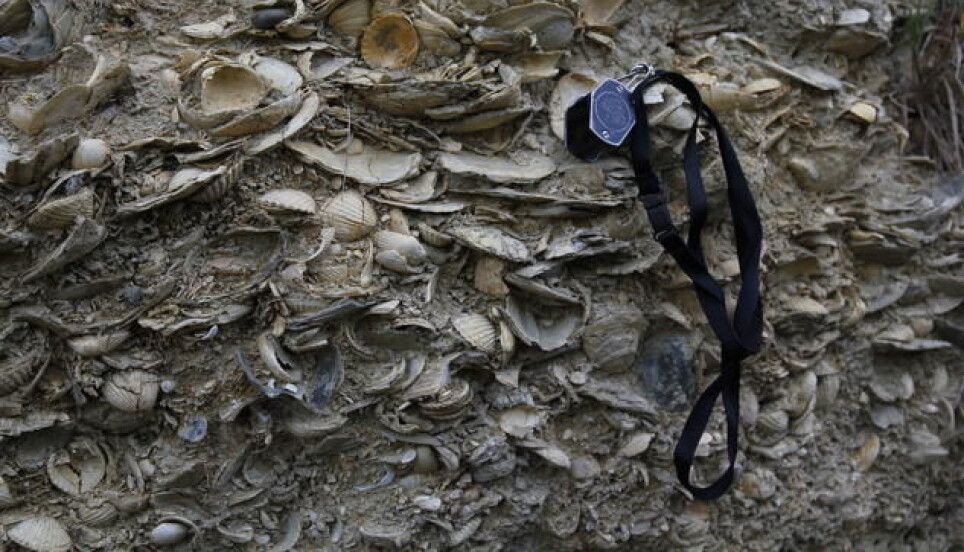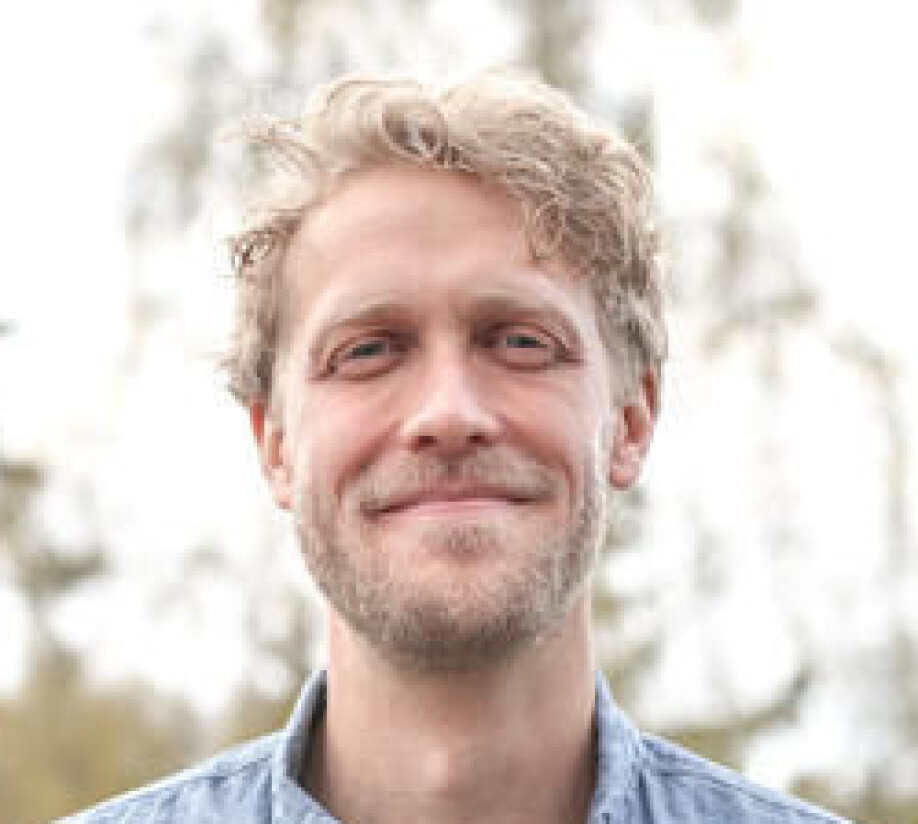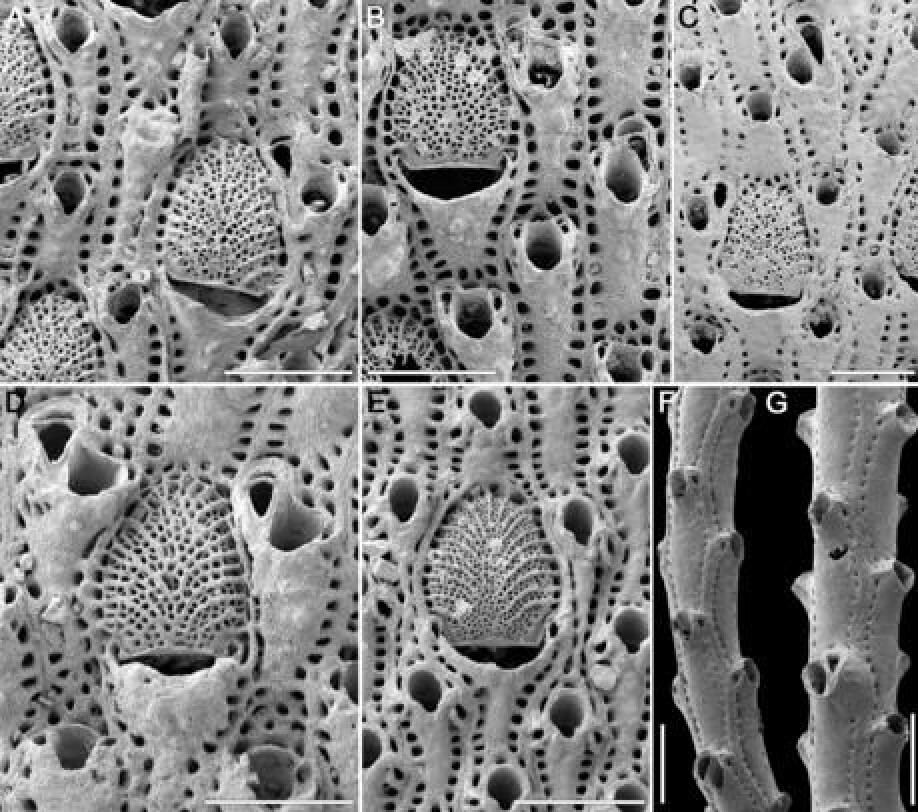THIS ARTICLE/PRESS RELEASE IS PAID FOR AND PRESENTED BY The Centre for Advanced Study (CAS) - read more

Making sense of quantitative studies of the fossil record
Despite its critical role in conducting good science, measurement theory remains largely unknown in large parts of biology. Kjetil Lysne Voje seeks to change that with his Young CAS Fellow project.
Kjetil Lysne Voje is a researcher at the Natural History Museum at the University of Oslo (UiO) and will lead the Young CAS Fellow project The Importance of Measurement Theory in Paleobiology.
Paleobiology applies quantitative analyses on data from the fossil record to describe and explain the origin, loss and evolution of biodiversity on Earth, Voje explains in his project proposal.
“The fossil record contains information on the evolution of life before our own time,” Voje said. “Quantitative analyses of data from fossils have therefore made important contributions to evolutionary biology. Discussions and awareness of measurement theory in such studies are rare, however, and violations of measurement theoretical principles obfuscate certain results in previous work.”
The evolutionary biologist suggests that measurement theory remains largely unknown in large parts of biology, including the field of paleobiology, and aims at changing this through his Young CAS Fellow project.

The project is one of the four Young CAS Fellow projects due to start in August 2021. The projects will last for two years.
We spoke with Voje about his project and his thoughts about having been selected for the Young CAS Fellow programme for 2021-23.
Congratulations! Could you briefly tell us about your project?
Thanks! It is an honour to be selected as a Young CAS Fellow.
My project is about making sense of quantitative studies of the fossil record. When doing quantitative science, we measure the things we want to investigate and attempt to learn something from our measurements. This might seem trivial, but actually it isn’t. For example, it is a meaningless statement to claim that 40 degrees Celsius is twice as warm as 20 degrees Celsius. 'Twice as' does not apply to the entity we are interested in saying something meaningful about, in this case temperature, but instead only applies to the numbers we chose to (arbitrarily) represent temperature. This becomes evident if we instead had measured the temperature in Fahrenheit: 104 degrees Fahrenheit is not ‘twice as warm’ as 68 degrees Fahrenheit. In other words, any conclusion drawn from analysis of measurements needs to take the correspondence between the entity and the measurement into account.
My project is about recognizing recognising aspects of measurement theory – a branch of applied mathematics that provides guidance on how to extract meaning from measurements – that are relevant for the quantitative study of the fossil record. The fossil record contains information on the evolution of life before our own time. Quantitative analyses of data from fossils have therefore made important contributions to evolutionary biology. Discussions and awareness of measurement theory in such studies are rare, however, and violations of measurement theoretical principles obfuscate certain results in previous work. One of the goals of my Young CAS Fellow project is to write a perspective or review paper that introduces measurement theory to a paleobiological audience

Please tell us about yourself, your research interests and your career path.
I am an evolutionary biologist interested in understanding the processes that shape and constrain evolution on short and long timescales. I am particularity interested in the extent to which the theoretical approaches we use to study evolution across a handful of generations are also helpful in explaining evolutionary changes observed on longer timescales, for example differences among species and evolution in the fossil record. I have most of my academic background from the University of Oslo, but I have spent time at Uppsala University and the Natural History Museum in London as a guest researcher.
Why did you apply to the Young CAS Fellow programme?
I realised that becoming a Young CAS Fellow would not only make it possible for me to start working on an exciting project I have had in mind for quite some time, but also to embark on this project together with experts from different fields with complementary skills.
What in particular are you looking forward to as a future Young CAS Fellow?
Being a Young CAS Fellow is an excellent opportunity for increasing my network, getting new perspectives and collaborating with new and leading researchers in my field. And being able to spend time at CAS is of course fantastic. I was a Fellow on a CAS project last year, and I loved the atmosphere and the conditions for doing science at CAS.
See more content from The Centre for Advanced Study:
-
Electrons, laser pulses and the properties of matter
-
Dissecting the current debates on prehistoric migration
-
Politics, law and society in the High Middle Ages
-
Which parts of language are universal and present in signed and spoken languages, and which depend on the channel of communication?
-
Mother-to-child microbial transmission: important for human health and challenged by modern lifestyle
-
What is the role of morality, democracy and experts in policymaking?





































